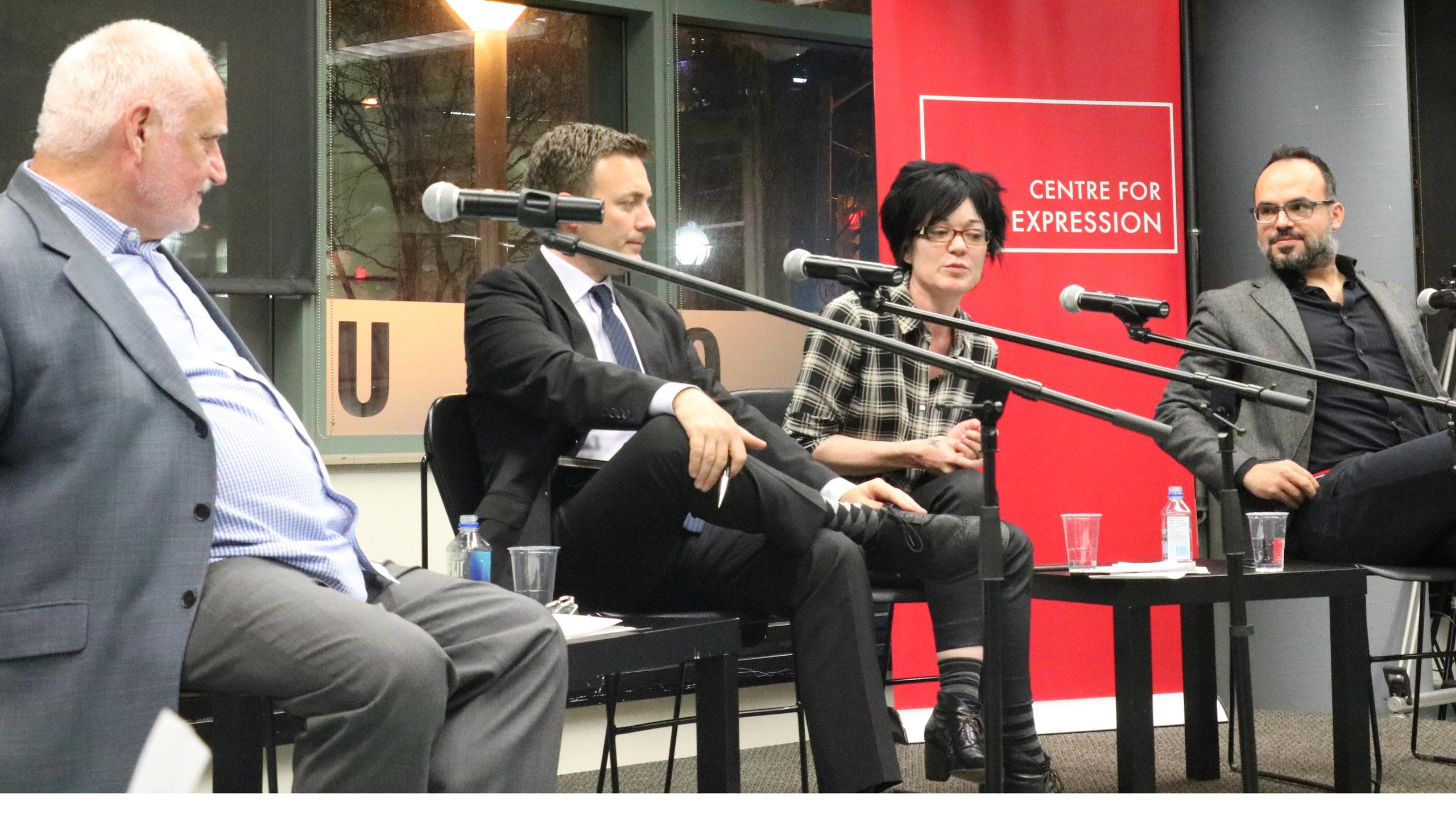By Sylvia Lorico
The internet is becoming less diverse and people are now more predictable to organizations who can track them, said journalist Hossein Derakhshan at a panel discussion at Ryerson Thursday evening.
The panel discussed the changes occurring online when apps like Facebook grow in popularity. Panelists included Sue Gardner, former executive director of Wikimedia Foundation, Brodie Fenlon, Senior Director for Digital News at CBC, Derakhshan, an Iranian-Canadian journalist and blogger, and Paul Kennedy, host of CBC radio show Ideas.
Gardner remembers a different type of internet than the one people use today.
“In its early days, it was messy and was full of amateurs and their passions.” she said, “People made enormous web essays about topics they were interested in and mixed it up with personal things.”
She also said that the internet was participatory. People who would use the internet in its early stages were people who were interested in making things. It was a free space for everyone to participate in.
Derakhshan describes a different online world in the present, one that limits the amount of information a person can read. It has become less diverse in the spread of information because posts online are shown based on popularity and recentness. So, posts that have many likes and shares will almost always be shared on your social media feeds, while those with few likes will not always be shown.
“It’s becoming a tyranny of the popular,” he said.
“In the era of blogging, you were able to read every post from top to bottom but now when you follow someone, you don’t see all their posts. You only get to see the ones the algorithms decide you should see.”
Gardner said that along with this trend on popularity based posts, users are becoming more selective online. This occurs as a result of smartphone use. Due to smaller screens on our phones and smaller keyboards, the ways in which one can produce text and view information are limited.
Gardner explained that with the rise of apps, we are even more limited in our interactions online because apps create a customizable experience.
“It confines you to that walled garden of that one specific place where you are,” she said.
Fenlon added that in using apps, we are contributing to a cycle between user and company, where the company constantly capitalizes off improving the personal experience for a user based on the amount of personal information we give to them.
“It gets to the point where you wake up one morning and your phones says ‘Hey, you’re almost late for your next meeting at 8:30 and by the way the traffic on your route is light today.’ If you’re like me, you would find that freaky but also useful,” Fenlon said.
The panel also discussed the impact of fake news sites on Facebook. A Buzzfeed News analysis from Aug. 1 to Nov. 8 showed that the 20 top-performing false election stories from hoax sites and highly biased political blogs generated 8,711,000 shares, reactions, and comments on Facebook. This is compared to the 20 best-performing election stories from 19 major news websites generated only 7,367,000 shares, reactions, and comments on Facebook.
In order to test if the claim about the prevalence of fake news on Facebook was true, Gardner created a Facebook account under the name “Kaitlin” and followed several pro-Trump pages online. She found that her feed was soon filled with fake news stories about Hillary Clinton, as well as anti-Clinton memes.
She said that online we are sorted into “tribes” based on our similarities with other people and that we tend to have our own filter about how we perceive events like the American election, resulting in selective consumption of media by users.
Fenlon suggests the solution to this problem is for Facebook take responsibility for the content that is being posted online.
“I think that Facebook needs to pull its head out of the sand and stop pretending that it’s not a media company,” he said, “It’s the most influential distributor of information in the world. It has a role to help the user discern quality from garbage and real from fake.”













Leave a Reply